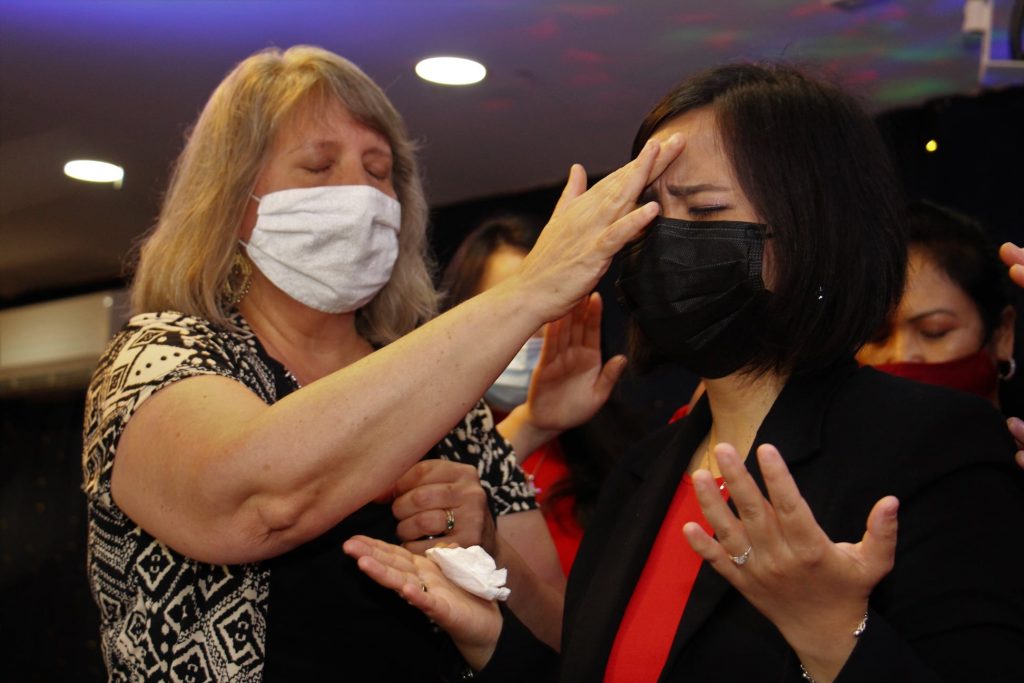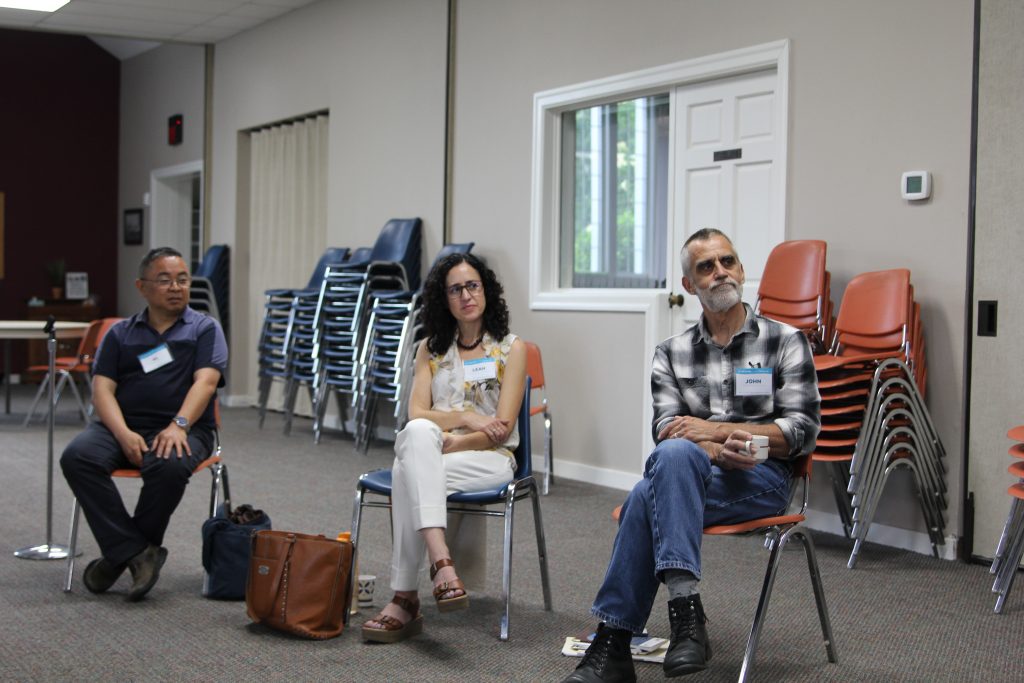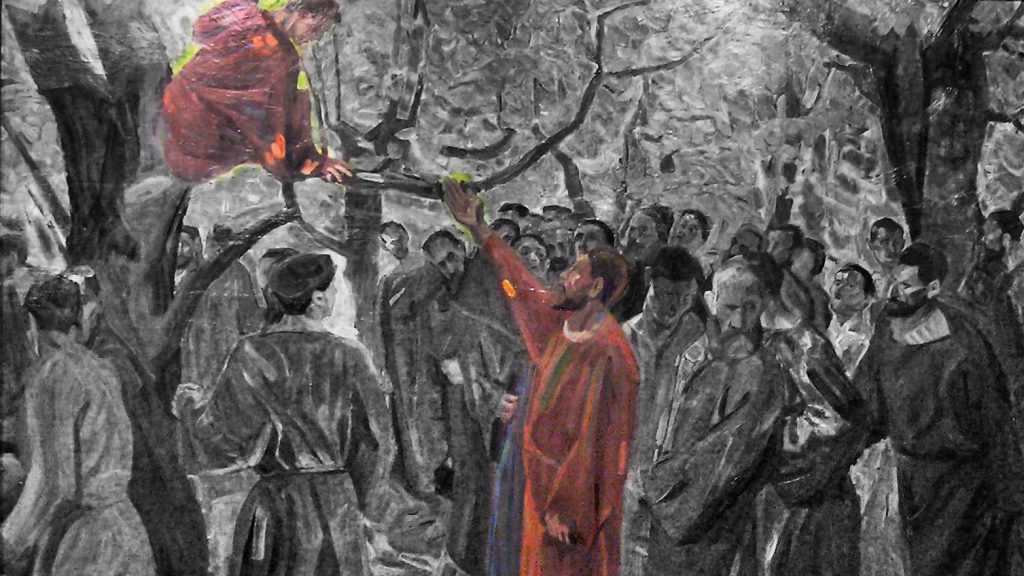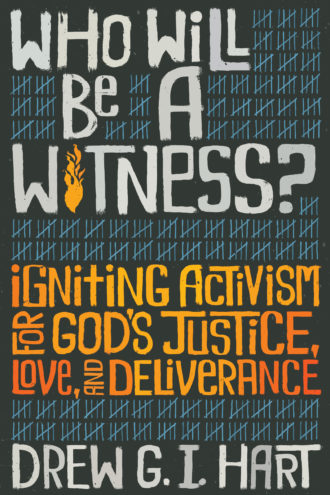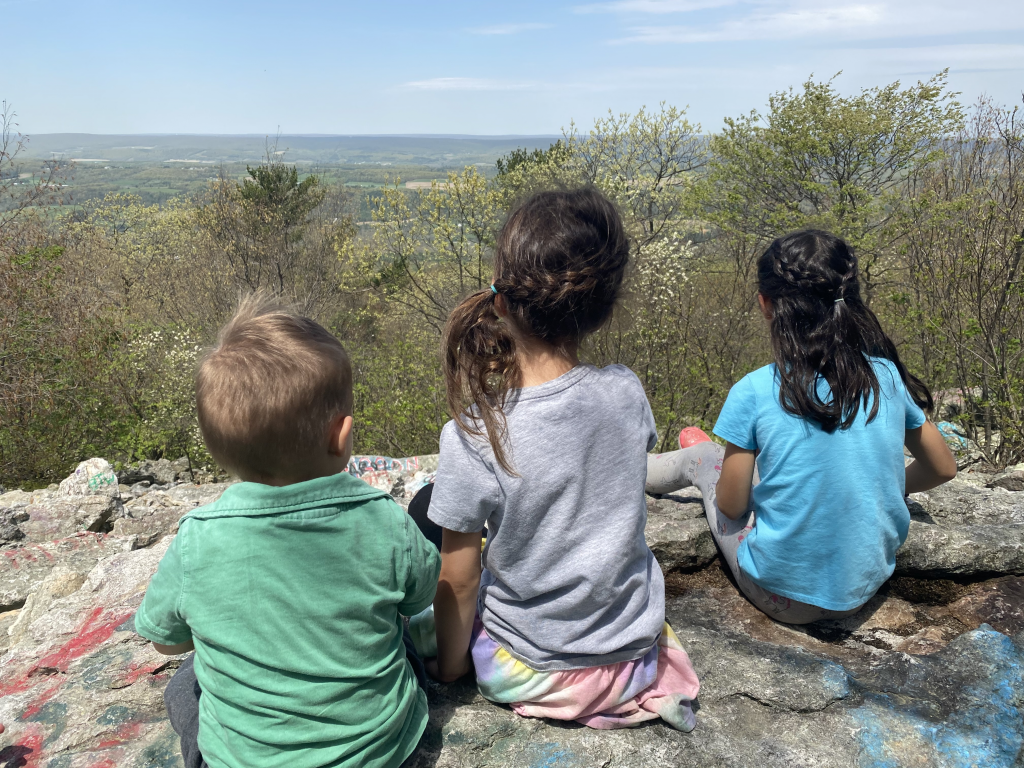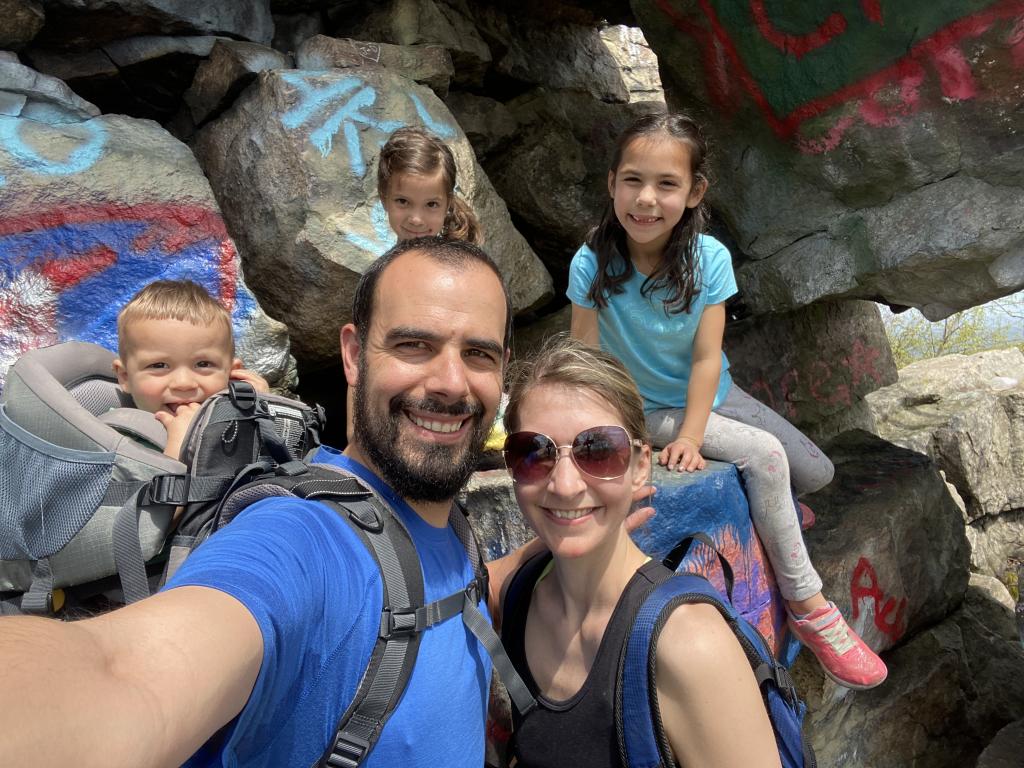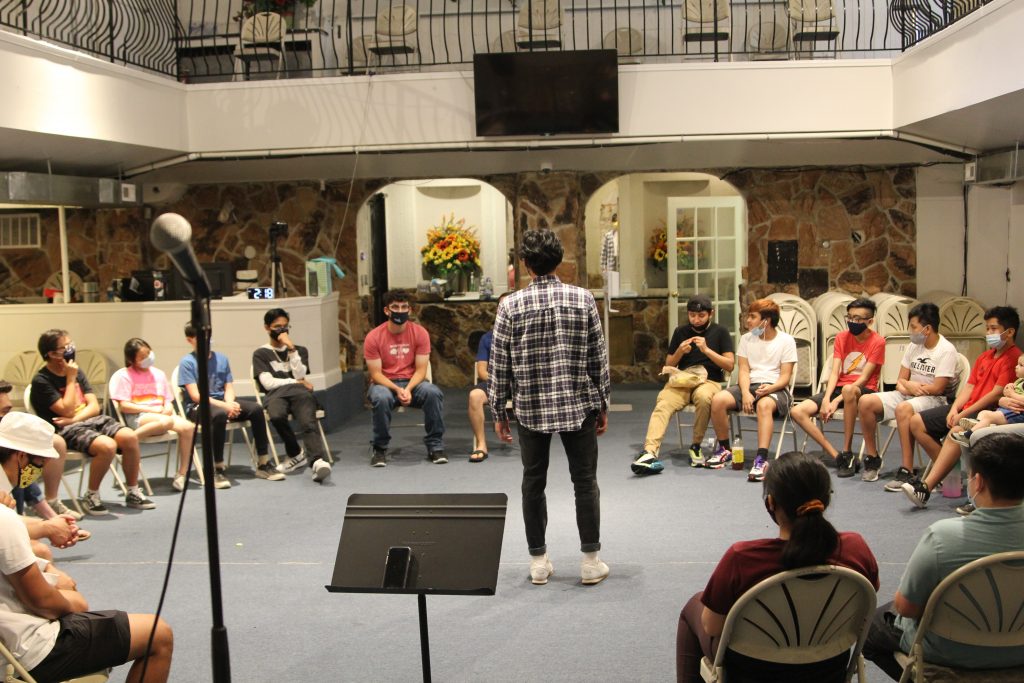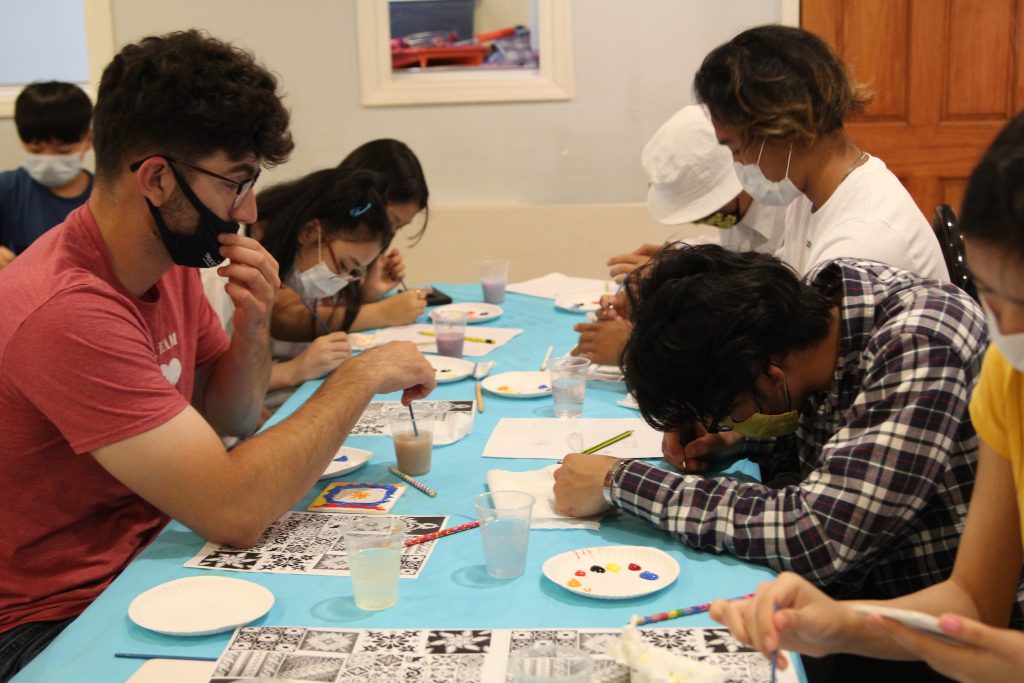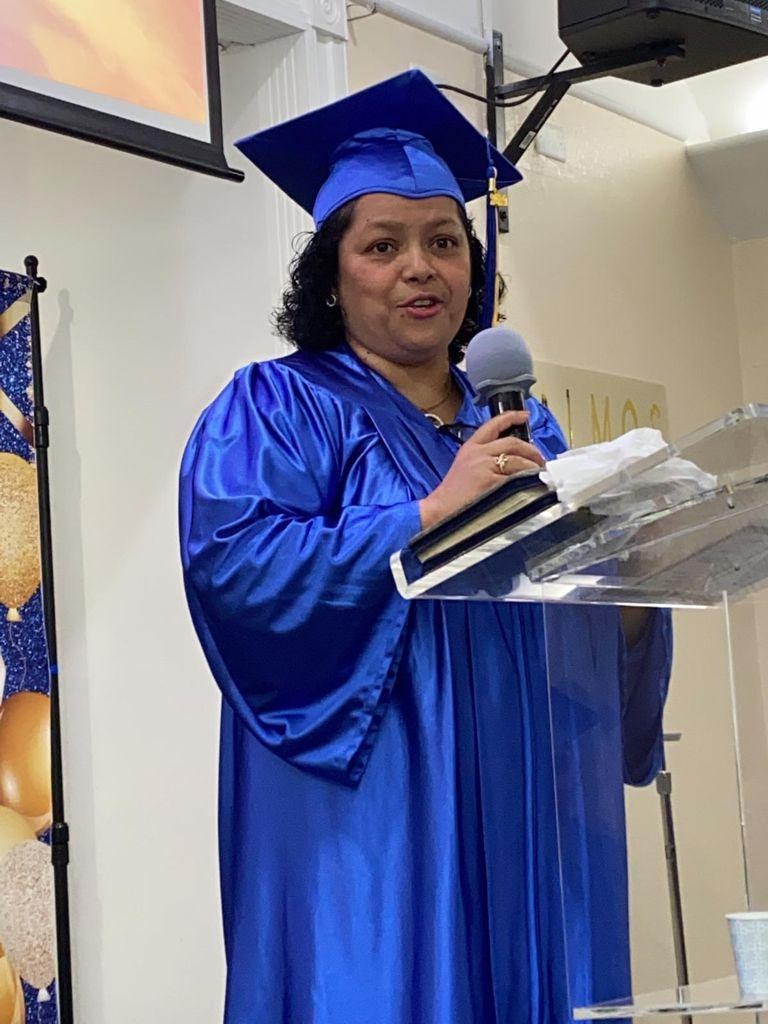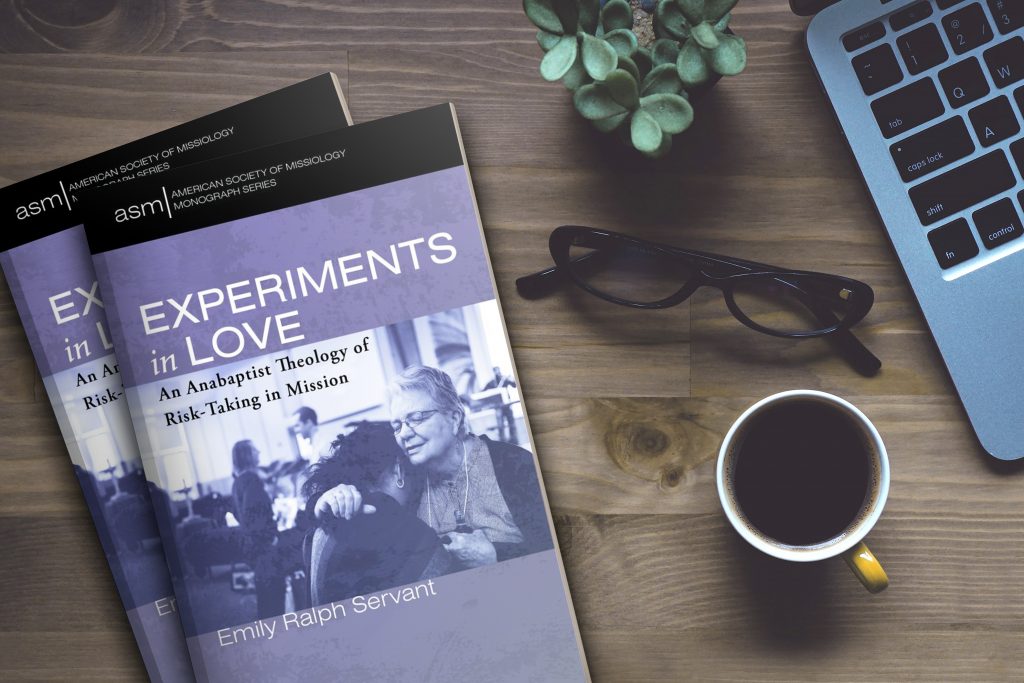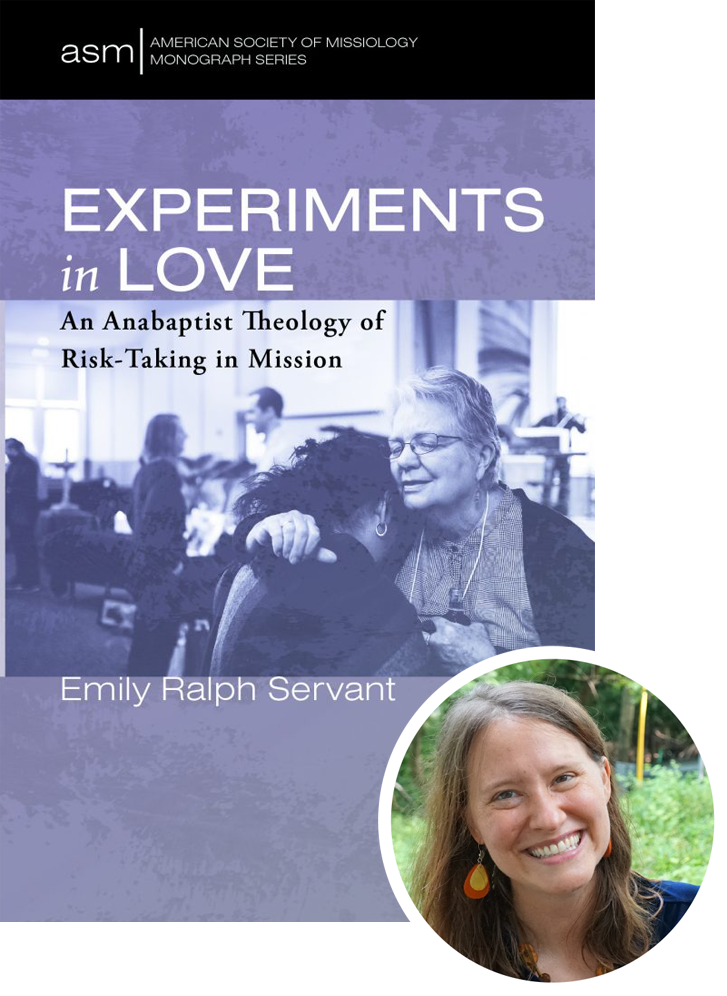A reunion of Mennonite service personnel who had served in Indonesia provided an opportunity for our first visit to Nations Worship Center on June 27, 2021. A friend who had worked with Mennonite Central Committee (MCC) in Indonesia wanted to attend Nation’s Sunday morning worship. Having met the church’s pastor, Beny Krisbianto, at a Conference meeting a few years ago, my wife, Mary, and I looked forward to taking our friend to Philadelphia for last Sunday’s worship.
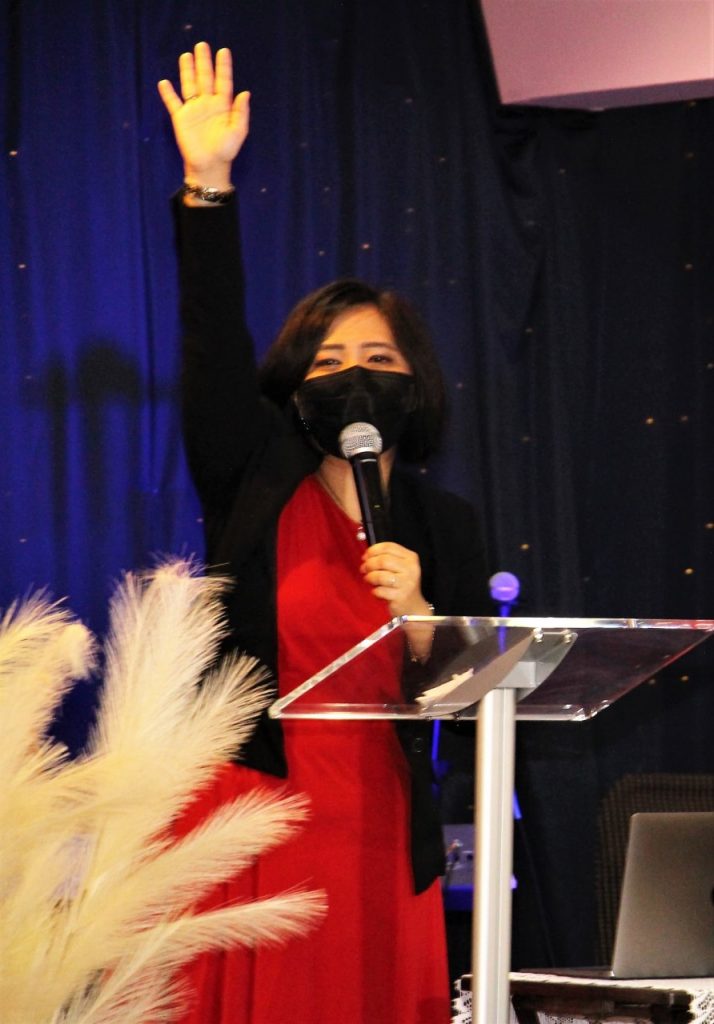
After squeezing our car into a tight parking space on Ritner Street, we entered the church, welcomed by face-masked ushers who led us to our chairs. Following the half-hour time of praise, led by the worship band, Pastor Beny greeted the congregation, especially welcoming the twenty-some persons who had once lived and worked in his home country of Indonesia. Instead of preaching, Pastor Beny introduced his wife, Angelia Susanto, who recently graduated from Missio Seminary in Philadelphia. Later in the service, Pastor Angelia would be formally licensed as co-pastor for the congregation.
Pastor Angelia shared with the congregation her call to follow Jesus Christ. From a Christian home in Indonesia, she become a youth leader in her church. After college she found employment in a prestigious bank. Earning a master’s degree, she was assigned a position handling accounts with international corporations. She continued youth ministries in the evenings.
One evening, driving her motorcycle through a rain storm in the city streets, she heard the voice of the Lord, asking, “Lia, do you love me?”
“Yes, Lord,” she answered, and heard the Lord saying, “Feed my sheep.” Hearing the Lord repeat the question two more times, she broke down in tears.
After persons on two occasions prophesied that she was being called to church ministries, she began studying in a local seminary in Indonesia. Her family questioned her decision to leave her prodigious bank position.
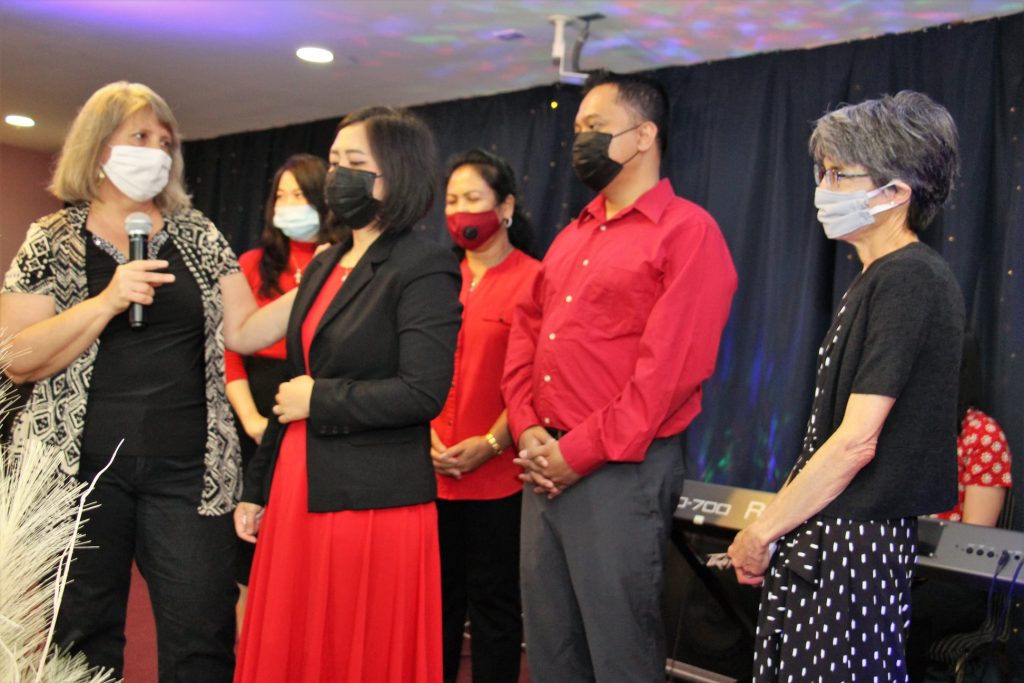
On one of Pastor Beny’s visits to Indonesia, he and Angelia met at a church gathering which eventually led to marriage and her move to Philadelphia. She continued her biblical studies in Philadelphia, often taking their infant daughter along to class. Studying part-time while caring for her family and supporting her husband in ministry, Pastor Angelia finally celebrated her seminary graduation in June. Her forceful presentation left no doubt that she brings a unique strength to the ministries at Nations Worship Center.
Joining the worship virtually, Pastor Angelia’s pastor from Indonesia addressed the gathering. He confirmed everything that she had testified about God’s leading in her life.
Mosaic Associate Executive Minister, Mary Nitzsche, preached the sermon, confirming Angelia’s call as well. Marta Castillo, Mosaic Leadership Minister of Intercultural Formation, then led in giving Lia the charge to pastoral ministry. The elders of the congregation joined in the prayer of dedication. Pastor Angelia is the first Asian woman to be credentialed by Mosaic Conference.
At the end of the service, Pastors Angelia and Beny’s daughter celebrated her fifth birthday. Guests were invited to a feast of Indonesian food prepared by members of the congregation. It was a day we will long remember, and we give thanks for evidence that the Lord continues building his church.
